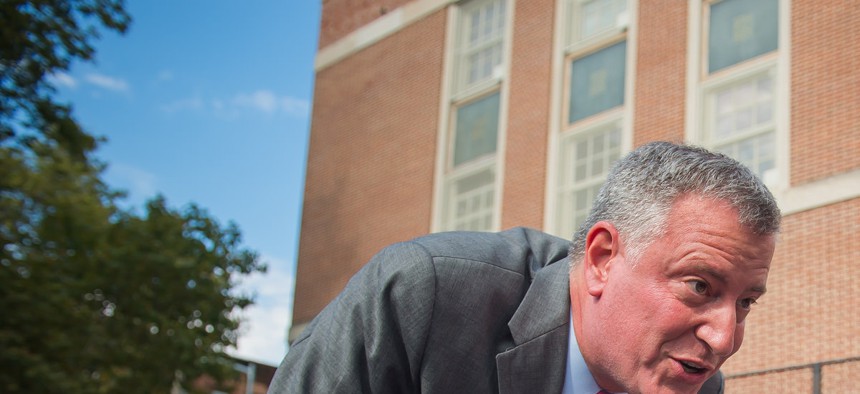Should New York City Press for a 'Global Wealth' Tax?

New York City Mayor Bill de Blasio NYC Mayor's Office

Connecting state and local government leaders
A special pied-a-terre levy could be an easier sell in Albany.
Here is our State & Local news roundup for Monday, September 22, 2014 ...
NEW YORK CITY, New York: With more and more apartments and condos sitting mostly empty in the nation’s largest city because of foreign owners who are not full-time New York City residents, Mayor Bill de Blasio says it might be time to consider a “global wealth tax.” According to Dana Rubinstein of Capital New York, the Fiscal Policy Institute is releasing a report that is “recommending that the de Blasio administration levy a tax on very expensive pied-à-terres” in New York City, which might be an easier sell to Albany lawmakers who would have to sign off on any such City Hall proposal.
SAN DIEGO, California: Although the San Diego area recently broke records for demands on its local electrical grid during a heatwave, California’s second largest city was able to meet its power needs without relying on the San Onofre nuclear power plant, which has been offline since 2012. “Without the plant, some state and federal energy officials questioned if San Diego would be able to maintain reliable electrical service during an energy crisis,” Morgan Lee of the San Diego Union-Tribune reports.
NASHVILLE, Tennessee: One out of five public school students in Tennessee’s capital city is Latino, according to new enrollment data. Latinos, according to Joey Garrison of The Tennessean, make up “the biggest and fastest-growing ethnic group represented among the 30 percent of Metro Nashville Public Schools students who live in homes in which English is not the primary language.”
BEAUMONT, Texas: Where is the most robust economic growth in high-growth Texas? It’s near the Louisiana state line in the Beaumont-Port Arthur area. Eric Besson of the Beaumont Enterprise reports that “Beaumont's recent economic growth outpaced every metro area in Texas and all but nine in the United States,” growing by 7.2 percent between 2012 and 2013, according to new federal data.
WASHINGTON, District of Columbia: Here’s something your state or local government doesn’t have to worry about: The White House security perimeter. But in the District of Columbia, the recent security breaches at the White House is raising new questions whether public access to local streets and sidewalks near the White House should be restricted even more. Aaron Weiner of Washington City Paper writes that “District residents shouldn't have to pay the price by losing yet another chunk of their city to security queues, bag checks, and the control of the feds.”





